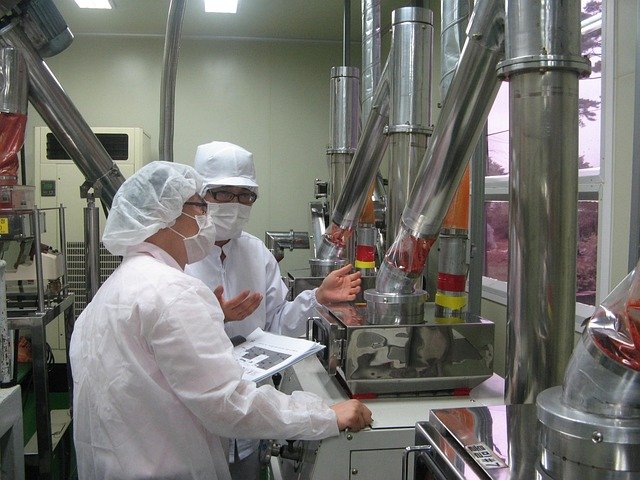Biocatalysis: Revolutionizing Industrial Processes
Transforming chemical manufacturing through enzyme-driven reactions, biocatalysis is reshaping industrial landscapes. This innovative approach leverages nature's catalysts to enhance efficiency, reduce environmental impact, and open new avenues for product development. As industries seek sustainable alternatives to traditional chemical processes, biocatalysis emerges as a game-changing solution, promising cleaner production methods and unprecedented molecular precision.

Advantages in Industrial Applications
The adoption of biocatalysis in industrial processes brings numerous benefits. Enzymes exhibit remarkable specificity, often catalyzing reactions with pinpoint accuracy that would be challenging or impossible with conventional methods. This precision reduces the need for complex purification steps, streamlining manufacturing processes. Additionally, biocatalytic reactions typically occur at lower temperatures and pressures, significantly reducing energy consumption. The biodegradable nature of enzymes also aligns with growing environmental concerns, offering a greener alternative to metal-based catalysts.
Challenges and Innovations
Despite its promise, biocatalysis faces hurdles in widespread industrial adoption. Enzymes can be sensitive to operating conditions, limiting their application in harsh industrial environments. However, recent advances in protein engineering and directed evolution have yielded more robust enzymes capable of withstanding extreme pH levels, temperatures, and organic solvents. Another challenge lies in scaling up biocatalytic processes from laboratory to industrial levels. Researchers are developing novel reactor designs and immobilization techniques to address this issue, enhancing enzyme stability and reusability.
Emerging Markets and Applications
The versatility of biocatalysis is opening new markets across various industries. In the pharmaceutical sector, enzymes enable the synthesis of complex chiral molecules with unprecedented efficiency, accelerating drug development timelines. The food industry is leveraging biocatalysis for the production of natural flavors and sweeteners, meeting consumer demands for clean-label products. Even the textile industry is exploring enzymatic treatments for fabric finishing, offering eco-friendly alternatives to chemical processes. As research progresses, the potential applications of biocatalysis continue to expand, promising innovations in materials science, energy production, and environmental remediation.
Economic Impact and Future Prospects
The economic implications of biocatalysis are significant. By reducing energy consumption, minimizing waste, and enabling new product development, biocatalytic processes offer substantial cost savings and revenue opportunities. Market analysts project rapid growth in the biocatalysis sector, driven by increasing demand for sustainable manufacturing methods and stringent environmental regulations. As the technology matures, we can expect to see a shift in industrial paradigms, with biocatalysis playing a central role in the transition towards a more sustainable and efficient manufacturing landscape.
Key Insights for Industrial Implementation
• Conduct thorough enzyme screening to identify optimal biocatalysts for specific reactions
• Invest in protein engineering capabilities to enhance enzyme stability and activity
• Explore immobilization techniques to improve enzyme reusability and process economics
• Develop integrated biocatalytic processes that combine multiple enzymatic steps
• Collaborate with academic institutions to stay abreast of cutting-edge developments in the field
• Consider biocatalysis as a complement to, rather than a replacement for, traditional chemical processes
• Implement robust quality control measures to ensure consistency in biocatalytic production
As industries worldwide grapple with sustainability challenges and seek innovative solutions, biocatalysis stands out as a beacon of progress. By harnessing the precision and efficiency of nature’s own catalysts, businesses can revolutionize their manufacturing processes, reduce environmental impact, and unlock new realms of product innovation. The journey towards widespread adoption of biocatalysis is well underway, promising a future where industrial chemistry aligns more closely with the principles of green technology and sustainable development.





